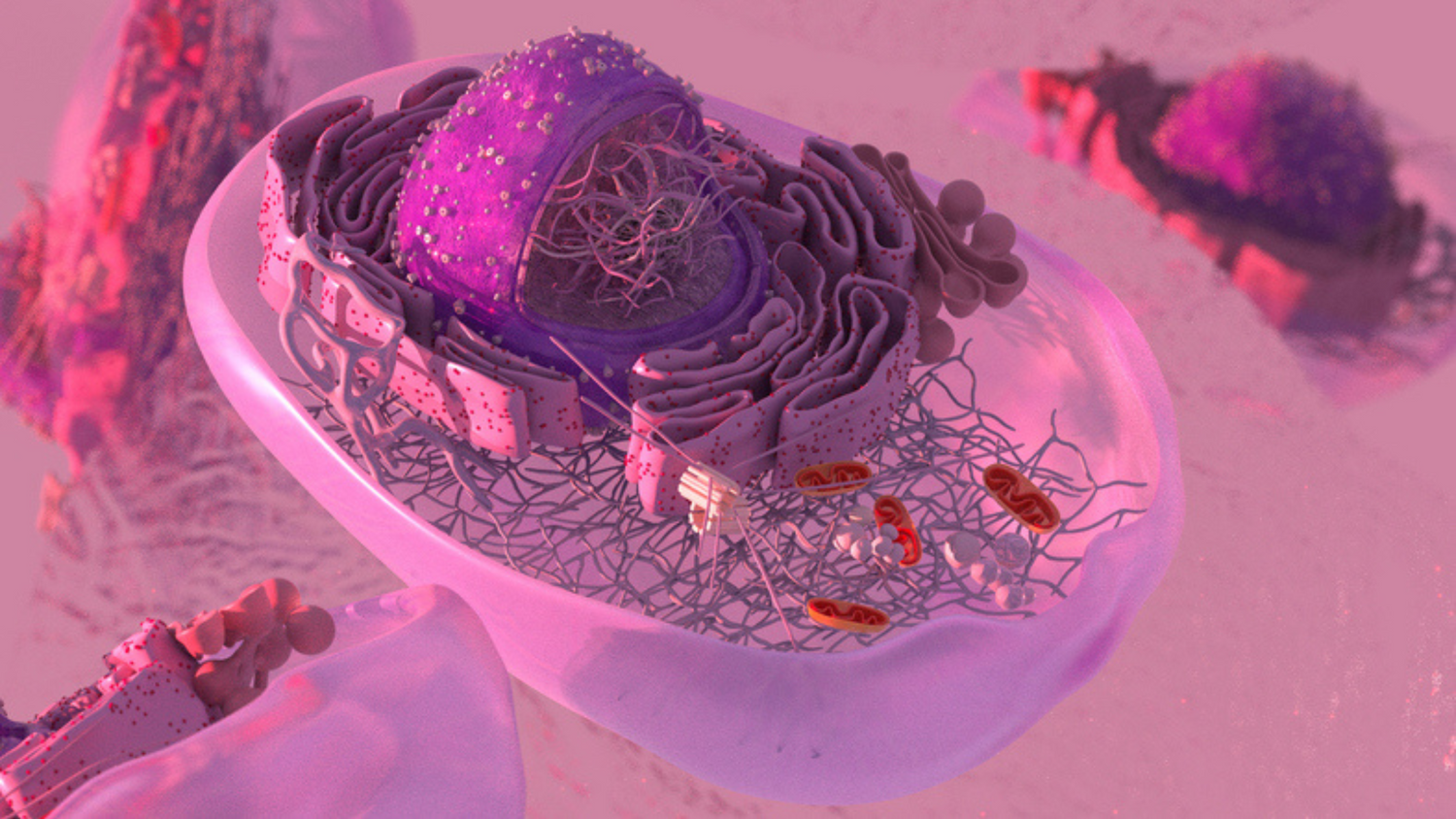Ageing is a universal journey, unique to each individual, yet shared by all. While the experience of ageing can vary greatly, the underlying biological processes are similar. This blog will explore the transformations in the body's systems, tissues, and cells as we age, delve into intriguing theories of ageing, clarify common aging terminology, and share practical tips for healthy ageing.
How Ageing Affects Your Body’s Systems
As we grow older, our bodies undergo a series of significant changes across various systems, impacting overall health and well-being:
Understanding these age-related changes is crucial for developing strategies to maintain health and improve quality of life as we age.
Cellular and Tissue Changes That Come with Age
As we age, our bodies undergo numerous cellular and tissue changes that affect our overall health and appearance.
Cellular Ageing
Cells gradually lose their ability to divide and replicate effectively, partly due to the shortening of telomeres, which act as protective caps at the end of chromosomes (R).
Tissue Changes
Collagen production decreases, causing the skin to lose elasticity. Fat distribution changes and connective tissues may become more rigid, leading to wrinkles and sagging skin (R).

Inflammation
Chronic low-grade inflammation, known as "inflammaging," can damage tissues and contribute to age-related diseases (R).
Fascinating Theories on Ageing
As we journey through life, our cells undergo a remarkable transformation, many theories have been proposed to help explain the ageing process.
Free Radical Theory
The Free Radical Theory of Ageing posits that free radicals, which are unstable molecules with unpaired electrons, cause cellular damage that accumulates over time, leading to the ageing process.
Free radicals are byproducts of normal metabolic processes and environmental exposures such as pollution, radiation, and cigarette smoke. These reactive molecules can damage DNA, proteins, and cell membranes, disrupting cellular function and integrity.
As the body ages, its ability to neutralise free radicals diminishes, resulting in increased oxidative stress and cumulative cellular damage. This damage is believed to contribute to the decline in physiological functions and the development of age-related diseases, such as cardiovascular disease, neurodegenerative disorders, and cancer (R).
Telomere Theory
The Telomere Theory of Ageing suggests that the progressive shortening of telomeres, the protective caps at chromosome ends, drives the ageing process and the onset of age-related diseases.
With each cell division, telomeres shorten, eventually leading cells to a state of replicative senescence where they can no longer divide. This accumulation of senescent cells contributes to tissue dysfunction, chronic inflammation, and diseases like cardiovascular disease and diabetes.
Telomerase, an enzyme that extends telomeres, is active in germ cells, stem cells, and cancer cells but is typically low in most somatic cells. Lifestyle factors such as stress, poor diet, and smoking can accelerate telomere shortening, while healthy practices like regular exercise, a balanced diet, and stress management can help preserve telomere length.
Research into telomerase activation and other telomere-lengthening interventions is ongoing, exploring their potential to combat age-related diseases and extend healthy lifespan. However, their long-term safety and efficacy remain under investigation (R).

Image: Telomere shortening ageing concept and reduction of telomeres located on the end caps of a chromosome resulting in damaging DNA resulting in shorter life or short lifespan
Mitochondrial Theory
The Mitochondrial Theory of Ageing suggests that mitochondrial dysfunction plays a significant role in the ageing process. Mitochondria, the powerhouses of cells, produce energy through oxidative phosphorylation but are highly exposed to reactive oxygen species (ROS), which can cause damage.
Over time, this damage impairs mitochondrial function, reducing energy production and increasing cell oxidative stress. The accumulation of mitochondrial damage disrupts cellular homeostasis, contributing to the decline in cellular function and the development of age-related diseases such as neurodegenerative disorders, cardiovascular diseases, and metabolic syndromes.
Maintaining mitochondrial health is crucial for healthy ageing. Strategies to support mitochondrial function include regular physical exercise, which stimulates mitochondrial biogenesis and efficiency, and a diet rich in nutrients that support mitochondrial function, such as NMN, antioxidants, coenzyme Q10, and omega-3 fatty acids.
Ongoing research is exploring therapeutic interventions to protect mitochondria from oxidative damage and enhance their function, aiming to mitigate the effects of ageing and extend healthy lifespan (R).
Stem Cell Theory
The Stem Cell Theory of Ageing suggests that the body's reduced ability to regenerate and repair tissues as we age is due to the decline in stem cell function and number. Stem cells, essential for tissue maintenance and repair, become less effective over time due to factors like DNA damage, changes in their supporting environment, and increased exposure to inflammation and oxidative stress.
This decline impairs tissue repair and regeneration, contributing to age-related conditions such as slower wound healing, reduced skin elasticity, and degenerative diseases.
Understanding the decline in stem cell function is crucial for developing therapies to enhance regeneration and repair. Potential strategies include protecting stem cells from damage, optimising their environment, or using regenerative medicine techniques like stem cell transplantation. By improving stem cell function, it may be possible to mitigate the effects of ageing and promote healthier, more resilient tissues (R).
Decoding Ageing Terminology
Understanding the intricacies of ageing requires a grasp of various specialised terms that describe the biological processes contributing to the decline in cellular and tissue function over time. Three key concepts—senescence, glycation, and autophagy—play pivotal roles in ageing.
Senescence: The process by which cells stop dividing and enter a state of permanent growth arrest, contributing to tissue ageing (R).
Glycation: A process where sugar molecules bind to proteins or lipids, leading to the formation of advanced glycation end products (AGEs), which contribute to ageing (R).
Autophagy: A natural process in which the body cleans out damaged cells and regenerates newer, healthier cells (R).
Tips for Ageing Healthfully
Adopting proactive strategies towards ageing can significantly improve your overall well-being and quality of life. Prioritising regular physical activity not only helps in maintaining muscle mass and cardiovascular health but also uplifts mood. Alongside physical fitness, a balanced diet comprising antioxidants, lean proteins, and healthy fats supports cellular nourishment and guards against age-related decline.
Furthermore, mental engagement through activities like reading, puzzles, or learning new skills promotes cognitive sharpness and mental acuity (learn more about this here). Strong social connections are vital in reducing stress and enhancing overall well-being, emphasising the importance of maintaining meaningful relationships.
Adequate sleep is essential for cellular repair and cognitive function, while stress management techniques such as meditation, yoga, and deep breathing help counteract the adverse effects of stress on aging. Integrating these strategies into your lifestyle allows you to age gracefully while maintaining a vibrant and fulfilling life.
Conclusion
While ageing is inevitable, understanding how it affects the body can help us navigate it with more awareness. By incorporating healthy habits and staying informed, we can influence how we age, embracing the journey with vitality and resilience.





